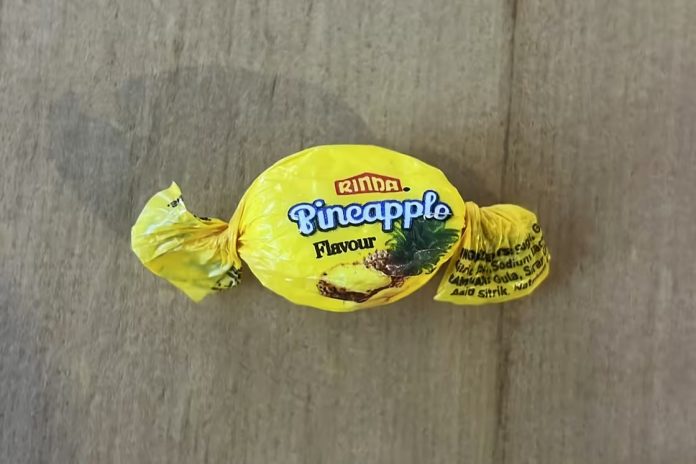New Zealand charity distributes candies with potentially lethal levels of meth
The Auckland City Mission said it was alerted to the incident when a person who had received a food parcel said it contained “funny tasting” sweets.
A New Zealand charity that works with low-income people says it unknowingly distributed candies containing potentially lethal levels of methamphetamine.
The Auckland City Mission said it was alerted on Tuesday when a person who had received a food parcel said it contained “funny tasting” sweets. It said the white pineapple candies, which bore the label of the Malaysian brand Rinda, had been donated in a sealed, retail-size package by an unidentified member of the public.
The New Zealand Drug Foundation, which tested the candies that were still on the premises, said each one contained about 3 grams of methamphetamine, up to 300 times the level someone might usually take.
“Swallowing that much methamphetamine is extremely dangerous and could result in death,” Executive Director Sarah Helm said in a statement.
The group said people who had started to consume the candies reported a bitter taste and feeling unusual.
Three people who consumed the candies were treated in hospital but later discharged, the Associated Press reported, citing New Zealand authorities.
The Auckland City Mission said it accepts only commercially manufactured food for inclusion in its food parcels and that the candies appeared as such when donated.
The group said it was “devastated” by the incident and that it had begun contacting all possible recipients to notify them of the problem.
“Our immediate priority is safety of people we support,” it said in a statement. “In time we will conduct an internal investigation to understand if our processes can be improved.”
Rinda, the Malaysian candy manufacturer, said it had learned about the contaminated sweets through news reports and that it would cooperate with the investigation.
“We want to make it clear that Rinda Food Industries does not use or condone the use of any illegal drugs in our products,” General Manager Steven Teh said in a statement.
Ben Birks Ang, a spokesperson for the NZ Drug Foundation, told the AP that each candy had a street value of 1,000 New Zealand dollars ($608), suggesting the donation was not intentional. Authorities said it was possibly a smuggling attempt that had gone wrong.
In the meantime, the NZ Drug Foundation warned consumers to avoid Rinda brand pineapple candies.
“We don’t know how widespread these contaminated lollies are,” Helm said, “so we recommend not eating any Rinda brand pineapple lollies if you have them.”
This story first appeared on NBCNews.com.








